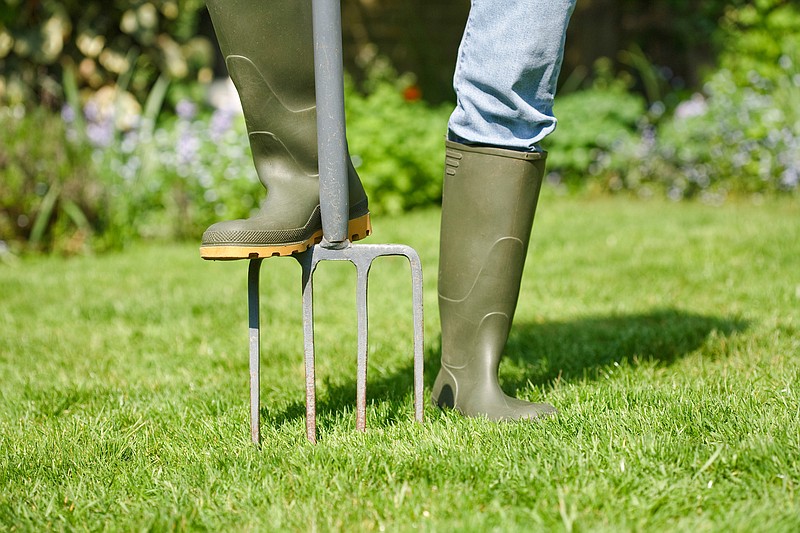When you plan for spring lawn maintenance, don't overlook aeration and dethatching. These two seemingly unglamorous, unexciting processes can play a big role in maintaining a healthy, bright lawn through the summer.
AERATION IMPROVES NUTRIENT ACCESS
Soil tends to compact over time, and this hinders the passage of air, water and nutrients to your grass roots. Aerating a lawn involves creating deep, slender holes that create a pathway for water and nutrients to reach hungry roots.
You can perform a basic aeration with a pitchfork or any tool that digs slim holes-just poke into the ground every few inches. Specific aeration tools are also available to buy or rent. You can even purchase special aeration shoes with two-inch spikes on the bottom that let you aerate the lawn simply by walking around.
However, this process, known as spike aeration, is only partially effective, because while it digs holes, it also presses soil together and can increase compaction. For the most ideal results, consider plug aeration. This process actually removes a small core, or plug, of grass and soil with each hole. Plug aeration tools use cylinder-shaped tines to penetrate the ground and pull up the plugs. Mechanical aerators look like push mowers and work largely the same.
If you aerate your lawn, make sure you have a reasonably moist lawn, and make multiple passes.
A professional can also handle this for you. You'll pay an average of $125 for this service. You can save time and money by combining this with fertilization service at the same time.
DETHATCHING REMOVES BUILDUP
Even the best-maintained lawn develops thatch over time. This brown buildup of dead and decaying matter above the soil and below the grass includes old grass clippings, compressed roots and stems. A small amount of thatch can be beneficial. Excessive thatch, however, creates a thick mat that prevents air, sunlight and water from reaching your lawn. It also creates runoff problems, as water flows across the thatch rather than soaking into the soil.
Depending on the size of your lawn and the depth of the thatch, you might be able to dethatch yourself without much trouble. A special dethatching rake, available from most hardware stores, can take care of small- or medium-sized jobs. It can take a lot of muscle power, though, so be prepared for a serious workout! For larger lawns, you can rent a dethatching machine, which is similar to a lawn mower with vertical blades. Run it across the lawn to cut up and loosen the thatch, then just rake up what's left. Have some cleanup bags on hand; the thatch can create a dense mess.
Alternatively, you can hire a professional to handle the job. This requires more time and effort than aeration, so you'll probably pay a few hundred dollars for the service.

